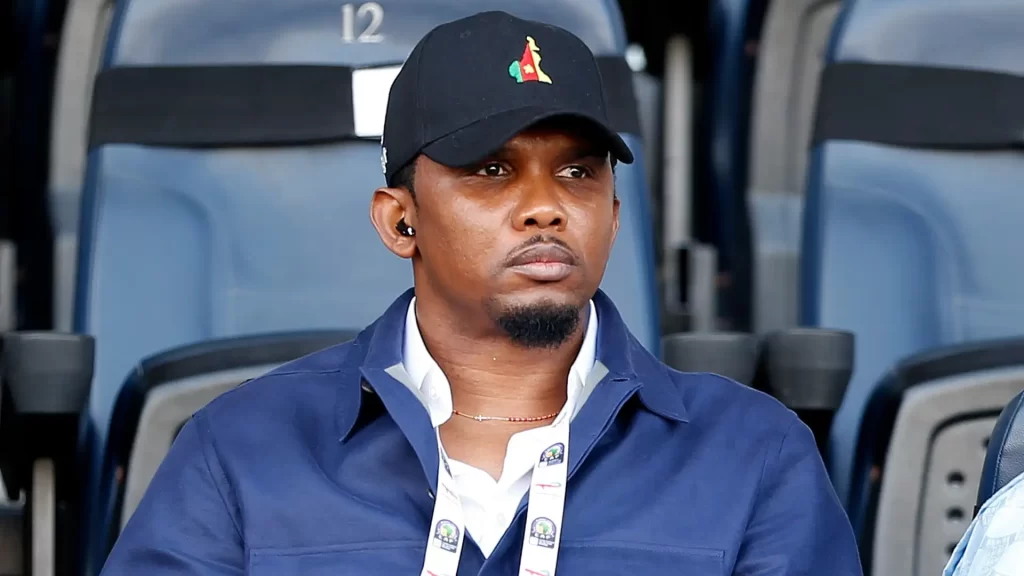Samuel Eto’o Faces Sanctions from FIFA: What Happened?
3 min read

Samuel Eto’o, the former Cameroon football star and current president of the Cameroon Football Federation, has been sanctioned by FIFA due to his behavior during a recent match at the FIFA Under-20 Women’s World Cup. The incident that triggered the sanctions occurred during a round of 16 game on September 11, where Brazil defeated Cameroon 3-1. This match marked a significant moment for Cameroon, being their inaugural participation in the tournament, although it ended in disappointment.
While FIFA has not disclosed specific details regarding Eto’o’s conduct during the match, it has confirmed that he violated two articles of the FIFA Disciplinary Code, specifically articles 13 and 14. These articles pertain to misconduct by players and officials, indicating that his behavior fell outside the accepted norms expected of individuals in his position.
Following the match, Cameroon’s head coach, Hassan Balla, voiced his frustration with the officiating, suggesting that the refereeing decisions may have impacted the outcome of the game. This critique highlights the tensions that can arise in competitive sports, especially when teams are navigating high-stakes tournaments.
Eto’o’s sanction includes a six-month ban from attending any matches involving Cameroon’s national teams. This means he will miss crucial fixtures for the men’s national team as they prepare for the qualifying rounds for the 2026 World Cup and the 2025 Africa Cup of Nations. His absence could have significant implications, not only for the team’s morale but also for the administrative decisions that he typically influences as federation president.
The consequences of this sanction reflect the ongoing scrutiny that officials face in international football, where standards of conduct are closely monitored. FIFA’s disciplinary actions serve as a reminder that the organization is committed to maintaining integrity within the sport, holding all individuals involved to a high standard of professionalism.
Eto’o’s legacy as a player is well-established, as he is widely regarded as one of Africa’s greatest footballers, with a career that includes stints at some of the world’s most prestigious clubs, such as Barcelona, Inter Milan, and Chelsea. However, this recent incident highlights the challenges he faces in his role as a football administrator, navigating the complexities of governance while maintaining the respect and integrity of the sport.
As the football community reflects on this incident, it raises broader questions about accountability and the behavior of officials and players alike. Eto’o’s situation underscores the importance of adhering to disciplinary standards, particularly in a world where the actions of prominent figures can significantly influence the perception of the game.
Looking ahead, it will be essential for Eto’o to address the circumstances surrounding his sanction and work towards rebuilding his reputation in the eyes of fans, players, and governing bodies. His leadership role in Cameroon football remains critical, especially as the nation looks to make its mark on the international stage following the disappointment of the Under-20 Women’s World Cup.
In conclusion, Samuel Eto’o’s recent sanctions from FIFA serve as a significant moment in his career, illustrating the fine line between passion and professionalism in sports. As he steps away from the sidelines for the next six months, the focus will be on how he navigates this challenging period and what it means for the future of football in Cameroon. The hopes of a nation now rest on the shoulders of the players and coaching staff, who will continue to strive for success in upcoming competitions without their federation’s president present at matches.